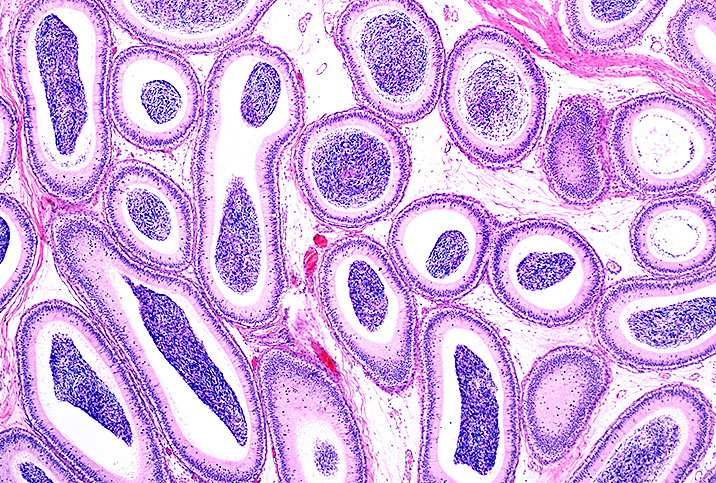Does Epididymitis Cause Infertility and Can It Be Reversed or Cured?

Inflammation is the body’s natural response to harmful stimuli, its way of warning us trouble is afoot. So when there’s unexpected inflammation in a man’s genital region, he needs to take note and respond, because it could be epididymitis.
The epididymis is a convoluted duct that carries sperm to the vas deferens, and if it becomes inflamed, that may signal a case of epididymitis. What’s the big deal, you ask? Patients with chronic epididymitis frequently experience impaired sperm motility and altered sperm parameters, such as an abnormally high white blood cell count, which can damage sperm’s genetic material.
Left untreated, epididymitis may leave scar tissue that blocks sperm transmission, which can cause long-term infertility.
Epididymitis symptoms include testicular or scrotal pain, unusual warmth in the scrotal region, excessive or painful urination, fever, and blood in the semen. In most cases, men who complain of these symptoms seek help quickly enough to have them easily treated with a course of antibiotics, and the condition rarely causes infertility. According to the Urology Care Foundation, sperm and hormone production are not adversely affected in most cases, and most men can still father children if epididymitis has impaired just one testis.
What the research says about epididymitis-caused infertility
Relatively few studies have focused directly on the relationship between epididymitis and infertility, though chronic epididymitis is frequently indicated as a cause in long-term infertility cases. A study involving eight men who had experienced acute epididymitis was published in a 2014 issue of Fertility and Sterility. It showed altered sperm protein composition in the study subjects, including the presence of proteins that are generally present in the sperm of infertile males.
A considerably broader experiment was published in 2018. This semen profile study of more than 600 men with epididymitis or varicoceles (enlarged veins in the scrotum) found that subjects with isolated chronic epididymitis were more likely to have low sperm motility and abnormal sperm formation, and were more apt to have secondary infertility, than subjects with other genital conditions. Furthermore, about 40 percent of the individuals with chronic epididymitis were obese or overweight, indicating that lifestyle choices may also affect the condition.
In another study, involving more than 800 patients with primary infertility, researchers examined several factors, including semen parameters, and then looked at whether the diagnosis of chronic epididymitis was associated with infertility. The data showed epididymitis can lead to decreased sperm motility, which can impact sperm quality for fertility. This study did not show a causal link but rather an association only.
Treatment and prevention for epididymitis and infertility
Fortunately, personal habits, including those that can contribute to infertility, can usually be controlled. The Mayo Clinic recommends weight management to improve fertility, as well as avoiding habits such as smoking and alcohol consumption.
Antibiotics, such as doxycycline and ciprofloxacin, are often prescribed for bacterial epididymitis, the symptoms of which include pain and swelling. Anti-inflammatory pills, such as ibuprofen, can mitigate discomfort and swelling. In severe cases, an epididymectomy, or the removal of the epididymis, may be required, though this occurrence is extremely rare.
Support for epididymitis and infertility
Scrotal support is important for men with epididymitis. In many cases, this can be accomplished by simply wearing a jock strap or special support underwear, some of which are adjustable. The front pouch, which lifts and holds the scrotum in place, aids healing by protecting against testicular trauma and providing support in a way the body cannot.
Alternative treatment if epididymitis is causing infertility
In extreme cases of epididymitis, a man may be incapable of producing ejaculate. In such a case, if a man and his partner want a child, blockage of the epididymis can be bypassed by removing sperm from the testes or epididymis and injecting it directly into a woman’s eggs in a process called in vitro fertilization (IVF).
Other assisted reproductive technologies can produce positive results in cases where epididymitis has caused long-term infertility, by manipulating donated sperm, eggs or frozen embryos.
Long-lasting impact of infertility caused by epididymitis
Epididymitis is a common genital condition in males and can usually be managed with relative ease without long-term reproductive repercussions.
Whether it is transmitted via bacteria or a sexually transmitted disease, epididymitis is quite treatable with antibiotics or antioxidants and anti-inflammatories. However, in extreme cases, or if treatment is delayed too long, epididymitis may contribute to infertility.

















